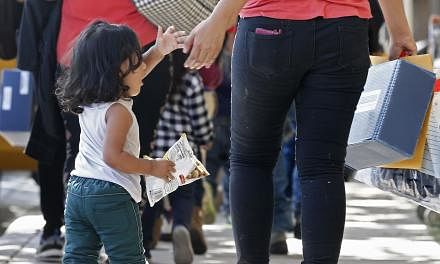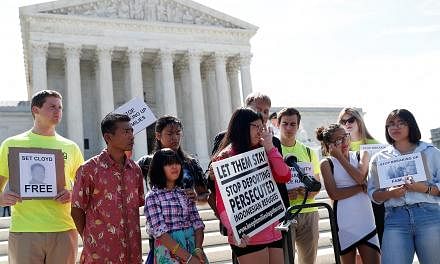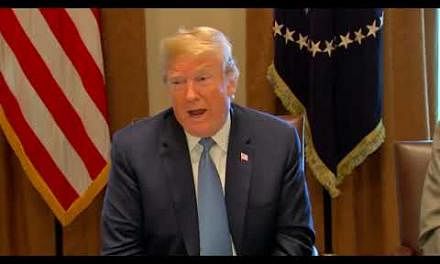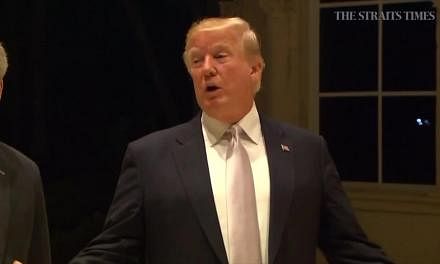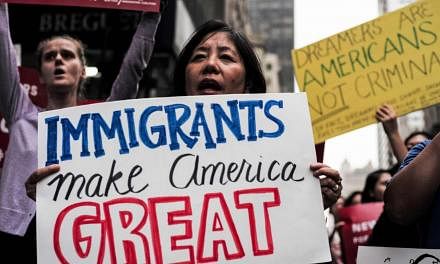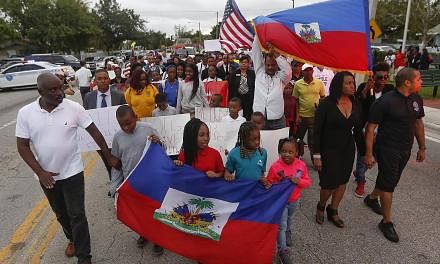(REUTERS) - A group of state attorneys general are discussing whether to file their own court challenge against President Donald Trump's order to restrict people from seven Muslim-majority countries entering the United States, officials in three states told Reuters.
Democrat attorneys-general are expected to be a source of fierce resistance to Mr Trump, much as Republican attorneys-general opposed former President Barack Obama.
A lawsuit brought by states would heighten the legal stakes surrounding the president's executive order, signed late on Friday (Jan 27), as courtroom challenges to the ban have so far mostly been filed by individuals.
Officials in the offices of attorneys-general in Pennsylvania, Washington and Hawaii said on Saturday they were evaluating what specific claims could be filed, and in which court.
"We do believe the executive order is unconstitutional," Hawaii attorney-general Douglas Chin told Reuters on Saturday. He declined to give further details.
The states could decide not to file, and it is unclear how many states would ultimately sign on for such an effort.
"There certainly are conversations underway," said Mr Joe Grace, a spokesman for Pennsylvania attorney-general Josh Shapiro.
A Trump representative could not be reached immediately for comment.
Mr Trump, a businessman who successfully tapped into American fears about terror attacks during his campaign, had promised what he called "extreme vetting" of immigrants and refugees from areas the White House said the US Congress deemed to be high risk.
He told reporters in the Oval Office on Saturday that his order was "not a Muslim ban" and said the measures were long overdue.
However, his order hit a roadblock late on Saturday when a federal judge in New York said stranded travellers could stay in the country.
The American Civil Liberties Union, which sought the emergency court order, said it would help 100 to 200 people with valid visas or refugee status who found themselves detained in transit or at US airports after Mr Trump signed the order.
The Department of Homeland Security said in a statement it would comply with judicial orders but that Mr Trump's immigration restrictions remained in effect.

